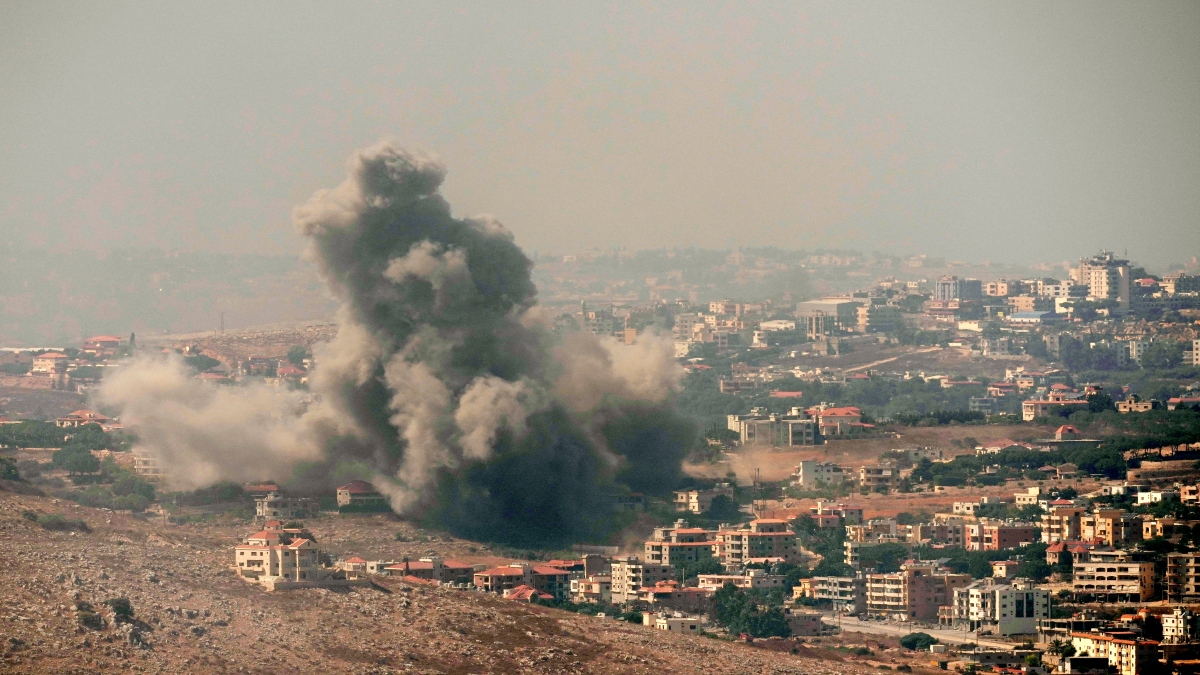Israel is preparing for a ground invasion of Lebanon as it intensifies its fight against Hezbollah, the Iran-backed Shia militia currently engaged in a war with the Jewish in support of another Tehran-backed group, Hamas in Palestine’s Gaza. Amid international efforts to de-escalate Israel-Hezbollah conflict, with the US and France proposing an immediate 21-day truce, Israeli defence forces chief has asked troops to be in ready state for a ground invasion.
Israel’s military chief Lt Gen Herzi Halevi told troops that extensive air strikes in Lebanon were aimed at paving the way for them to “enter enemy territory”. Halevi said, “You hear the jets overhead; we have been striking all day. This is both to prepare the ground for your possible entry and to continue degrading Hezbollah.”
More than 600 people have died in Israeli strikes in Lebanon, including areas that are beyond Hezbollah strongholds, forcing Beirut to appeal to the US for taking immediate steps. Lebanon said only the US could end the ongoing conflict, emphasising Washington DC “is the key to our salvation” as Israel continues to pound the country.
Why Lebanon can’t act against Hezbollah
Hezbollah has a unique role and position in Lebanon. It has legislators and enjoys wide public support among Shia Muslims, but it operates independently of the official government of Beirut. Hezbollah has about 80,000-100,000 armed fighters — separate from the official army of Lebanon.
Impact Shorts
More ShortsHezbollah watchers say that the militia is capable of defeating the Lebanese army if the two go to the war. While Hezbollah fighters are battle-hardened for having been in a state of war, not only in its campaign against Israel but also Syria, where it supported the forces of Bashad al-Assad. The backing of Iran and uninterrupted supplies of arms and ammunition to the Lebanon-based outfit gives an added advantage to Hezbollah over the Lebanese armed forces.
But the Iran-backed group is not only an armed unit, it is a political party — its name translates to the “Party of God”. It has three ministers in the interim government of Lebanon. It is part and parcel of the government decision-making process in Lebanon, yet it maintains autonomy in its armed operations in West Asia — say, against Israel.
Lebanon has a complicated government structure that is based on sectarian distribution of power among Christians, Shias and Sunnis for the posts of the president, the prime minister and the speaker of its parliament. Most Shia groups are either aligned with Hezbollah or have ties of cooperation with it. This makes any action by the government of Lebanon, if in place, difficult to act against Hezbollah.
No president since 2022
Former Lebanese army commander and former prime minister Michel Aoun served as the Lebanon president from 2016 to 2022, when he quit. Parliamentary election was held in 2022 but no party gained a majority. Hezbollah, which earlier enjoyed a majority, lost its control of parliament. Najib Mikati, who has since been serving as the caretaker prime minister, leads an interim government that does not have control over Hezbollah.
The Lebanese constitution says that the president can only be elected by the 121-member parliament through voting. For more than two years, Lebanon has been without a president.
And every time the matter comes to vote in the Lebanese parliament, Hezbollah uses its might in the legislature to block the election of the country’s president. This works well for Hezbollah as it runs its writ without any nominal or real pressure from the official government of Lebanon.
The incumbency of the president gives the government the authority of popular mandate to act against a group, irrespective of its position in politics, if found to be a threat to national security — a situation that Lebanon finds currently itself in because of Hezbollah stand on Israel-Hamas conflict.
It was not the Lebanese army but Hezbollah that declared war on Israel, following its military campaign in Gaza after Hamas fighters killed more than 1,200 people and abducted over 250 during the October 7 raid last year from Israeli areas.
This explains Lebanon’s hesitation in acting against Hezbollah. Lebanese prime minister, Mikati, who positions himself as a liberal leader, has failed to impress upon Hezbollah led by Lebanese Shia cleric Hassan Nasrallah, who has continued to keep fighting Israel until the Jewish state stops its Gaza campaign.
Lebanon, once called “Switzerland of the East” and was part of the Ottoman Empire, will likely plunge into a greater chaos if Mikati orders the national armed forces to rein in Hezbollah as the Shia group is capable of pushing the country to a civil-sectarian war, and be sure of victory with the help of and supplies from Iran.


)

)
)
)
)
)
)
)
)



